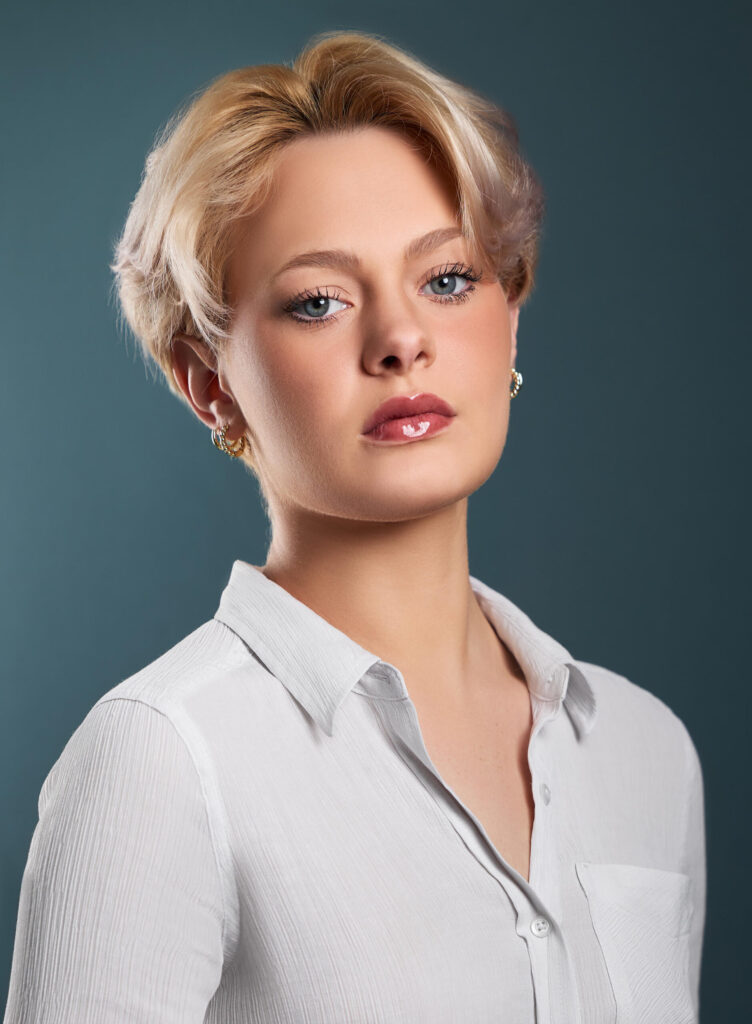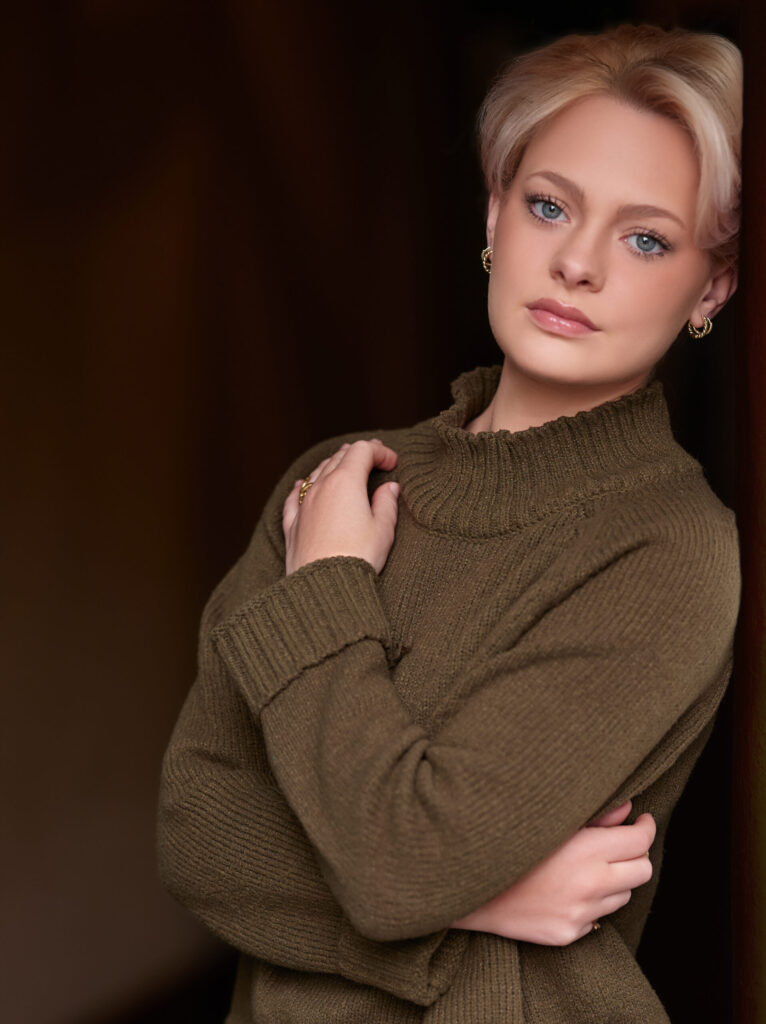
Emiliana Jasper brings striking emotional depth to her breakout role in the gripping psychological thriller MIA, releasing this month—a performance shaped by a lifetime of resilience, imagination, and quiet rebellion. Raised in a conservative Minnesota household where identity was tightly policed, the openly gay actress discovered freedom through storytelling, cultivating a fierce drive to explore the emotional gray zones so often ignored by mainstream cinema. Now based in Santa Barbara, she balances a nine-to-five job with weekend trips to Los Angeles for auditions, shoots, and screenings. Her grounded performances and unapologetic authenticity are quickly earning her attention. “There’s still a stigma to being gay in Hollywood,” Jasper acknowledges, “but I feel a shift happening. Younger filmmakers are valuing queerness as a lens for bold, emotionally rich stories.” With MIA, she steps into that shift, bringing nuance, urgency, and vulnerability to a character whose reality teeters between obsession and truth. Jasper isn’t just a compelling new face—she’s part of a rising wave of queer storytellers redefining what it means to lead, both on screen and behind the scenes.
What drew you to such a complex and enigmatic role?
Emiliana Jasper: I was fascinated by the tension Emma, my character in MIA, holds: she’s both a mirror and a mystery, someone who has endured a lot but refuses to be easily defined by it. She’s been shaped by control, by silence, by people constantly projecting onto her, and yet she holds her version of truth, even if she can’t fully articulate it. I loved the idea of playing someone who isn’t easily understood, but who still feels deeply human.

You’ve said Emma’s journey mirrors your own in resisting other people’s definitions of who you are.
EJ: As a queer person who grew up in a strict, controlling environment, I spent a lot of my early life being shaped by other people’s expectations on how I should behave, who I should be, what parts of myself were “acceptable”. In portraying Emma, I recognized parts of myself that I’ve honestly been ashamed of: the impulse to disappear, to stay silent, to internalize blame to keep the peace. I also saw parts of myself that I’m proud of: her fiery defiance, her compassion in the face of chaos, and her undeniable humanity even when she’s guarded or unsure. Emma doesn’t always do what’s expected of her, but she acts from a place of instinct and truth. Her resistance isn’t loud, but it’s powerful. That resilience, that subtle insistence on having her own inner life, even when no one sees it, felt very familiar and very queer to me.
The story unfolds like a psychological game of chess between Emma and Aaron, played by actor Shah Motia.
EJ: The relationship between Emma and Aaron is the heart of the story, and everything else in the film surrounds that shifting, psychological power dynamic. From the beginning, Shah and I knew that tension had to feel alive and driven by instinct and emotion more than strategy. We didn’t over-rehearse or try to pin down every beat, because part of the magic was in keeping things just a little unstable. Much of the tension stems from staying just a little bit off balance with each other. For Emma especially, every moment with Aaron is a test of how much of herself she’s willing to reveal and protect.
As the mystery unfolds, Emma goes from defensive to determined. How did you calibrate that emotional shift across the course of the film?

EJ: In the beginning, Emma is all defense. She’s used to protecting herself by retreating, by staying quiet and unreadable. That guardedness is her armor. It’s how she has survived in a world that’s tried to define her, control her, and strip away her sense of agency. But as her relationship with Aaron becomes more tangled, something shifts. She begins to realize that no one is coming to save her.
At one point, Emma appears to relate to Aaron.
She sees his confusion, his disconnection from reality, and something in her recognizes it. That feeling of being lost, of not knowing what’s real or who to trust; it’s familiar to her. And in a twisted way, there’s comfort in that recognition. I think part of her almost wants to believe the version of reality he’s offering, because at least it would give her a reason to leave the stifling, controlled life she’s living at home. Even a dangerous kind of freedom starts to look like relief.
What do you hope queer audiences take away from Emma’s journey in MIA?
EJ: I hope queer audiences see something of themselves in Emma’s quiet resistance, in the way she begins to reclaim her voice, her agency, her sense of self. Emma starts in a world that wants to define her, contain her, and by the end, even though she doesn’t make the choice people want her to make, she makes a choice of her own. One that’s hers. And that, to me, is incredibly queer: choosing yourself, even if no one else understands it. For those of us who’ve grown up in environments that felt suffocating—whether because of our gender, sexuality, or just the fear of not fitting into someone else’s idea of who we should be—I hope Emma’s journey feels like a reflection of that ache, and maybe even offers a bit of hope.
MIA is available on major TVOD platforms, including Apple TV, Amazon Prime Video, and Google Play, on July 8.

